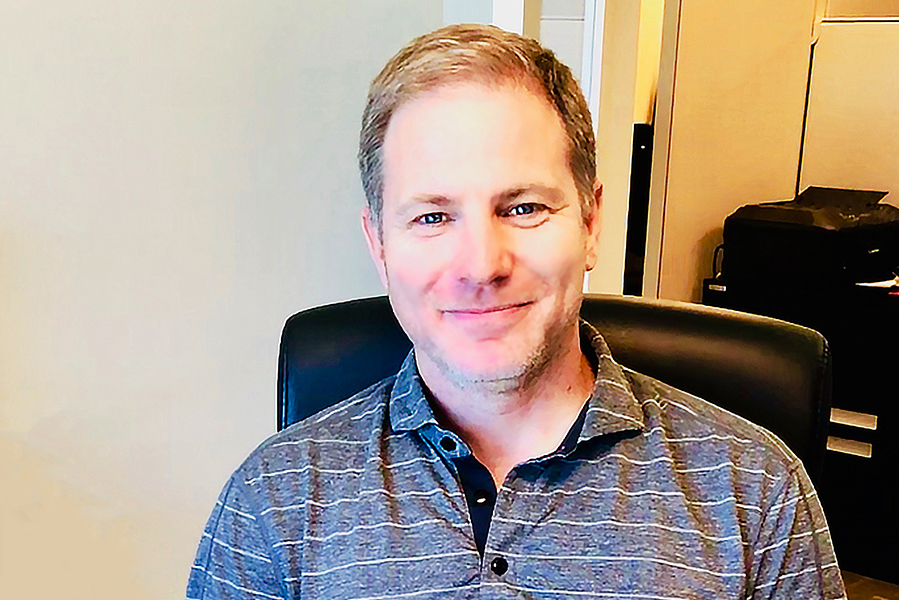10 minutes read
Quick overview:
Birthplace: Ottawa, Ontario, Canada
Family status: Married, has 2 children.
Education: B.A.Sc. Computer Engineering, University of British Columbia.
Prior to 14 Oranges: Embedded Engineer.
Favorite place to travel: Anywhere with mountains.
Hobbies: Coaching, mountain biking, ice hockey, skiing, paddle boarding.

1. Dan, what brought you in the tech industry, and specifically, in software development? Was it your childhood dream or you made a decision pragmatically when you decided to study at UBC?
I would say both. I always was interested in technology and my parents supported me in this. So when the time came I decided to study Electrical Engineering at UBC as it was the program that most fit my interests. It just also happened to be that it was around the time that the Internet was exploding and a lot of technologies with it so as a career the future looked pretty promising at the time.
2. You joined 14 Oranges in 2011 as a developer and in a year became a Chief Technical Officer, right?
Sylvain and I (author: Sylvain Marcotte – is the Owner and CEO of 14 Oranges) have been friends since 1996, and he invited me in 14 Oranges to help to work on several projects. I agreed because I was interested to work on mobile applications, especially in a good company (laughing). The business was growing and we decided to hire new employees. So for me, it was a natural promotion, and I became a CTO with a team of 5 highly skilled software developers.
3. What is your approach as a manager: you value most the results or the process?
The process is what I value the most. Having a good process is the only way you can end up with consistently good results.
Understanding and following the process even the simplest of a project just helps make everything move along smoothly and predictably. They also help eliminate simple mistakes while allowing projects to grow and be managed easily. They allow everyone to spend their time working on real problems.
In 14 Oranges, we have structured processes and standardized workflow that we constantly reevaluate to ensure what we are doing makes sense, especially with the constantly changing supporting technologies.
4. What are the most popular software technologies you use for mobile app development?
There are plenty of different technologies to use for mobile app development starting from native to hybrid. At 14 Oranges we focus on using native technologies as they enable us to make apps that are able to use all the features of the platform. They also help in making sure there is consistent and efficient user experience. We still use hybrid technologies from time to time, as they fit the project.
For iOS apps, we work with native Objective-C and Swift. While for Android apps, we generally work with Android Developer Studio using Java.
Our turn-key software solution Info Grove is also based on native technologies, so we are able to use everything the mobile platforms have to offer.

5. What is the hardest and the easiest part of the mobile apps development process?
Creating the app or coding is not the most difficult part of the process. When you know the technology and have the experience, this is often most straightforward. The real challenge is understanding the needs and requirements of our clients and translating that into the app they want.
Starting from the kick-off meeting until the final acceptance there are constant discussions about all aspects of the project. Keeping this communication channel open and accessible is essential for the project to be successful. We focus on getting the most complete information from the customer at the initial stages regarding the business needs and expectations for the app in terms of functionality and user experience. The clearer the requirements are for both sides at the beginning of the project, the more successful the project will be itself.
6. Do you feel that there is a gap in technology understanding between developers and customers? How do you level it with your customers?
I wouldn’t say that there is a gap. We are creating apps, not the space shuttle (smiling). So people are aware of mobile apps and in general what they can and cannot do. During the technical discussions, we always try to understand the finer details as much as possible. The details are often hard and often we uncover questions that have not even been considered by the client. Missing these details is often what results in a gap in expectations between what is provided and what is expected.
7. Many market experts predict the boost of IoT, cloud technologies, machine learning, AI, augmented reality, virtual reality, blockchain, and beacons in the nearest future. How do you think that will transform the mobile development industry? What is likely to be integrated into mobile apps?
I am a very pragmatic person and always thinking about the practical value of the technology. Technically we can implement or integrate any technology in apps as far as it makes sense.
A good example of this is the Bluetooth beacons. Support for this is now available in most mobile devices, so apps can now start figuring out how to make proper use of them. Museums have started using them in conjunction with apps to provide additional information/story about exhibits without requiring a specialized device to do this. This is a good example of the useful combination of the software – the mobile application on your mobile phone and the hardware – a beacon.
8. What impact will have the wearables have as a “must-have future accessory” on mobile apps development?
Wearables have a good practical value for people so no wonder there are so many apps to monitor your health conditions for instance or track your distance while you are running. The mobile app provides you with the data analytic, predicts and alerts you when some parameters have changed. There are still some issues with battery life and sensor accuracy, but as these improve they will be more ubiquitous then there already have.
9. Dan, let’s dream about 50 years in advance. What is the future of mobile apps? Are they still in mobile phones or maybe directly as a chip in our heads?
One thing is for sure, technologies are changing our lives. At the same time, people and their needs are the main driving force behind the adoption of technology. We are hitting a point where there are technologies available but have not yet been deployed as we have not figured out how they fit properly into our daily lives – or even if they should. I think we’re moving out of a time where we accepted any technology as always being useful and into a time where we are more judgemental on what we should use. It won’t be technology being the main driver, but society itself.

Share This Article